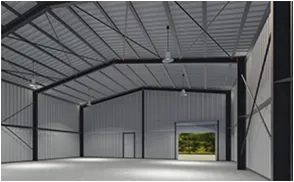- Afrikaans
- Albanian
- Amharic
- Arabic
- Armenian
- Azerbaijani
- Basque
- Belarusian
- Bengali
- Bosnian
- Bulgarian
- Catalan
- Cebuano
- Corsican
- Croatian
- Czech
- Danish
- Dutch
- English
- Esperanto
- Estonian
- Finnish
- French
- Frisian
- Galician
- Georgian
- German
- Greek
- Gujarati
- Haitian Creole
- hausa
- hawaiian
- Hebrew
- Hindi
- Miao
- Hungarian
- Icelandic
- igbo
- Indonesian
- irish
- Italian
- Japanese
- Javanese
- Kannada
- kazakh
- Khmer
- Rwandese
- Korean
- Kurdish
- Kyrgyz
- Lao
- Latin
- Latvian
- Lithuanian
- Luxembourgish
- Macedonian
- Malgashi
- Malay
- Malayalam
- Maltese
- Maori
- Marathi
- Mongolian
- Myanmar
- Nepali
- Norwegian
- Norwegian
- Occitan
- Pashto
- Persian
- Polish
- Portuguese
- Punjabi
- Romanian
- Russian
- Samoan
- Scottish Gaelic
- Serbian
- Sesotho
- Shona
- Sindhi
- Sinhala
- Slovak
- Slovenian
- Somali
- Spanish
- Sundanese
- Swahili
- Swedish
- Tagalog
- Tajik
- Tamil
- Tatar
- Telugu
- Thai
- Turkish
- Turkmen
- Ukrainian
- Urdu
- Uighur
- Uzbek
- Vietnamese
- Welsh
- Bantu
- Yiddish
- Yoruba
- Zulu
Nov . 19, 2024 21:00 Back to list
The Rise of Steel Buildings A Pillar of Modern Architecture
In the landscape of modern architecture, steel buildings have emerged as a defining feature of urban development. With their unique aesthetic appeal, structural robustness, and sustainability, steel constructions are reshaping the way we perceive and interact with our built environment. This article delves into the various aspects of steel buildings, exploring their advantages, applications, and the future of architecture.
The Advantages of Steel Buildings
One of the primary reasons for the popularity of steel in the construction industry is its strength-to-weight ratio. Steel can bear heavy loads while remaining relatively lightweight, allowing for taller structures and expansive open spaces without the need for supporting columns. This flexibility in design has paved the way for innovative architectural forms, enabling architects to push the boundaries of creativity and functionality.
Additionally, steel buildings offer remarkable durability. Steel is resistant to common issues such as warping, splitting, and insect infestation, which can plague materials like wood. This resilience not only reduces maintenance costs but also extends the lifespan of the building, making it a cost-effective choice for developers and owners. Furthermore, steel is highly recyclable, positioning it as an eco-friendly alternative in an increasingly sustainability-conscious world.
Applications of Steel Buildings
The applications of steel in construction are vast and varied. From commercial skyscrapers and industrial warehouses to residential complexes and bridges, steel has proven to be an essential material across multiple sectors. Iconic structures such as the Empire State Building in New York and the Burj Khalifa in Dubai exemplify the grandeur that can be achieved with steel framing, showcasing its role in creating landmarks that define city skylines.
steel buildings

In recent years, the use of steel in residential construction has gained traction. Steel homes present a modern aesthetic that appeals to many homeowners while providing energy efficiency and lower insurance costs due to their fire-resistant properties. Modular steel buildings are especially popular for their quick assembly and customizable designs, which cater to the growing demand for affordable housing solutions that do not compromise quality.
The Future of Steel Construction
As we move forward, the integration of technology in steel construction is set to revolutionize the industry. Advanced manufacturing techniques, such as 3D printing and automated fabrication, allow for greater precision and reduced waste. Moreover, the use of Building Information Modeling (BIM) software enables architects and engineers to design projects with enhanced collaboration, leading to more efficient construction processes and better project outcomes.
Sustainability remains a critical focus in the construction sector, and steel is well-positioned to meet these challenges. Development in green steel production, which utilizes renewable energy sources, significantly reduces the carbon footprint of steel manufacturing. Innovations such as using electric arc furnaces and increasing the efficiency of recycling processes will further mitigate environmental impacts. Steel’s inherent recyclability ensures that as buildings reach the end of their life cycle, the material can be reclaimed and reused, contributing to a circular economy.
Conclusion
Steel buildings stand at the forefront of contemporary architecture, reflecting an era that values innovation, sustainability, and design excellence. Their ability to adapt to the evolving needs of communities, combined with their structural benefits, makes them a preferred choice for architects, developers, and investors alike. As we explore new horizons in design and construction techniques, the future of steel buildings looks bright, promising a built environment that is not only functional and aesthetically pleasing but also harmoniously aligned with our planet's ecological needs. In embracing steel as a core material, the architecture of tomorrow will undoubtedly continue to defy limitations and inspire generations to come.
-
How Do Prefabricated Steel Structures Transform Modern Construction?
NewsJul.14,2025
-
How Do Prefabricated Metal Buildings Redefine Modern Construction?
NewsJul.14,2025
-
How Do Prefab Insulated Metal Buildings and Steel Structures Revolutionize Modern Construction?
NewsJul.14,2025
-
How Do Pre - Engineered Steel Structures Redefine Modern Construction?
NewsJul.14,2025
-
Advancing Modular Construction with Prefabricated Metal Structures
NewsJul.14,2025
-
Advancing Industrial Infrastructure with Prefabricated Steel Solutions
NewsJul.14,2025
Products categories
Our Latest News
We have a professional design team and an excellent production and construction team.












